|
|
         |
|
|
 |
 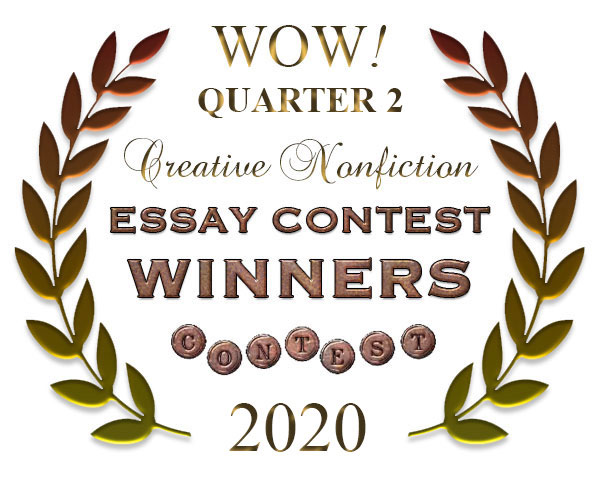
|
 |
| |
|
|
| |
|

We had an open topic this season. Our only guidelines were that submissions be nonfiction with a minimum of 200 words, and a maximum of 1,000 words.
|
| |
|
Thanks to our Guest Judges:
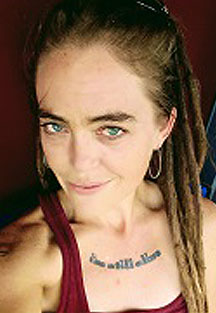
Chelsey Clammer
WOW! was honored to have guest judge author/editor/instructor Chelsey Clammer choose the quarter’s top winners. Thank you, Chelsey, for sharing your time and efforts to make these contestants’ dreams come true!
Chelsey Clammer Chelsey Clammer is the award-winning author of Circadian (Red Hen Press, 2017) and BodyHome (Hopewell Publications, 2015). A Pushcart Prize-nominated essayist, she has been published in Salon, Brevity, McSweeney’s Internet Tendency, The Normal School, Hobart, The Rumpus, Essay Daily, and Black Warrior Review, among many others. Her third collection of essays, Human Heartbeat Detected, is forthcoming from Red Hen Press. Chelsey received her MFA in Creative Writing from Rainier Writing Workshop. You can read more of her writing at: www.chelseyclammer.com.
-----
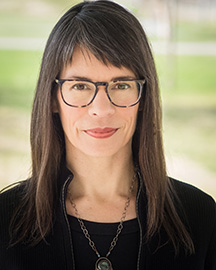
Naomi Kimbell
Naomi Kimbell earned her MFA in creative writing from the University of Montana, and her work has appeared in The Rumpus, The Nervous Breakdown, Crazyhorse, Black Warrior Review, Calyx, The Sonder Review, and other literary journals and anthologies. When she’s not writing, she sometimes wanders in the woods, across hillsides, through ghost towns, taking photographs and shooting video to create impressionistic films with ambient scores using her essays, invented landscapes, and found sounds.
-----
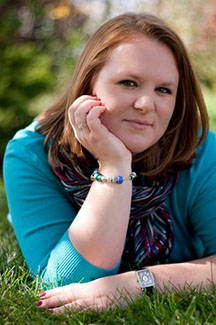
Melissa Grunow
Melissa Grunow is the author of I Don’t Belong Here (New Meridian Arts Press, September 2018) and Realizing River City: A Memoir (Tumbleweed Books, 2016), which won Second Place-Nonfiction in the 2016 Independent Author Network Book of the Year Awards and the Silver Medal in Nonfiction-Memoir from Readers’ Favorite International Book Contest. Her work has appeared in Creative Nonfiction, River Teeth, The Nervous Breakdown, Two Hawks Quarterly, New Plains Review, and Blue Lyra Review, among many others. Her essays have been nominated for a Pushcart Prize and Best of the Net and listed in the Best American Essays 2016 and 2018 notables. She has an MFA in creative nonfiction with distinction from National University. Visit her website at www.melissagrunow.com or follow her on Twitter @melgrunow.
-----
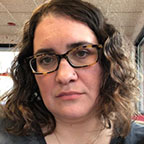
Sarah Broussard Weaver
Sarah Broussard Weaver is currently in her second year of the Rainier Writing Workshop MFA program at PLU. Her work has appeared in Full Grown People, The Nervous Breakdown, The Bitter Southerner, Brevity, Crack the Spine, and Hippocampus, among others. She lives in the hills of Portland, Oregon.
-----
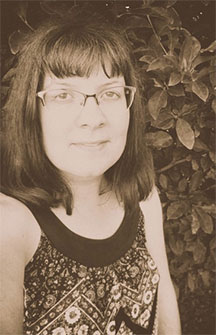
Melanie Faith
Melanie Faith is a poet, fictionist, photographer, auntie, and professor. Her craft book about how to write flash fiction and nonfiction, entitled In a Flash! was published in April 2018, and a craft book for poets, Poetry Power, was published in late October 2018 (also by Vine Leaves Press). Her historical poetry collection, This Passing Fever, set in the 1918 influenza epidemic, was published by Future Cycle press in early September 2017. Her Jane-Austen style Regency novella was also published in September 2017 by Uncial Press and RONE-award nominated. Her writing has been nominated for three Pushcart Prizes. Her short stories were recently published in Red Coyote and SunLit Fiction. Her poetry most-recently appeared in Prometheus Dreaming (May 2019), Up North Lit, Meniscus, and in Fredericksburg Literary and Art Review. Her photography recently appeared in Barren Magazine, Fourth & Sycamore, Harbor Review, Sum Journal, and And So Yeah. In 2018, two of her craft books were published, and her next book, Photography for Writers, will be available in December 2019 from Vine Leaves Press. Learn more about her latest projects at: www.melaniedfaith.com/blog/.
-----
Thanks to our in-house WOW Judges:
As always, thank you to the WOW! staff for your careful deliberation and attention to detail. Special thanks to Margo L. Dill and Angela Mackintosh for helping out with this contest.
-----
|
| |
|
Note to Contestants:
We want to thank each and every one of you for sharing your wonderful essays with our guest judges this season. We know it takes a lot to hit the send button! While we’d love to give every contestant a prize, just for your writing efforts, that wouldn’t be much of a competition. One of the hardest things we do after a contest ends is to confirm that someone didn’t place in the winners’ circle. But, believe it when we say that every one of you is a true winner.
Every writer has been a gracious participant through the whole process, from the beginning of one season to the next. We’ve written emails to authors, agents, and publicists who have donated books to our contest, and we’ve shared our delight regarding the true sportsmanship among our contestants. It doesn’t matter if it’s one writer who placed or another who tried but didn’t; all writers are courteous, professional, and wonderful extensions of WOW! Women On Writing’s team. Writers’ essays and e-mails fill us with enthusiasm.
Kudos to all writers who entered, whether you won or not, you’re still a winner for participating.
***
To recap our current process, we have a roundtable of 4-7 judges who blindly score equally formatted submissions based on: Subject, Content, Technical, and Overall Impression (Style). That’s the first step of the process. If a contestant scores well on the first round, she receives an e-mail notification that she passed the initial judging phase. The second round judging averages out scores and narrows down the top 20 entries. From this point, our guest judge helps to determine the First, Second, and Third Place Winners, followed by the Runners Up.
As with any contest, judging so many talented writers is not a simple process. With blind judging, all contestants start from the same point, no matter the skill level, experience, or writing credentials. It’s the writer’s essay and voice that shines through, along with the originality, powerful and clear writing, and the writer’s heart.
***
We’ve enjoyed reading your essays, each and every one of them. The WOW! Women On Writing judges take time to read them all. We recognize names of previous contestants, writers familiar with our style. We enjoy getting to know you through your writing and e-mailing. Remember that each one of you is a champion in our book. We hope that you continue to enter so we can watch you grow as writers and essayists, because each season is a rebirth of opportunity.
Now on to the winners!
Drum roll please....
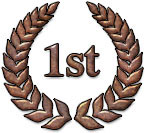
1st Place: Natalie Beisner
Los Angeles, California
Congratulations, Natalie!
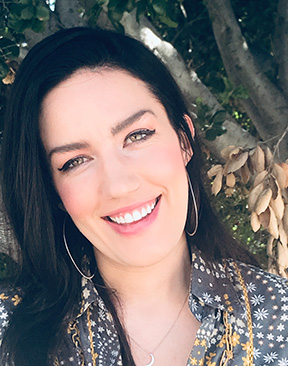
Natalie’s Bio:
Natalie Beisner is a Los Angeles-based writer. Her essay Morning After Text received an Honorable Mention in WOW’s 2019 Q3 Creative Nonfiction Essay Contest. Her work has also been recognized by Kaleidoscope: A Reflection on Women’s Journeys and ArtAscent. She is a graduate of Cal State Fullerton University, with a BFA in Theatre. You can follow her on Instagram @nataliejeanbeisner.
Printable View
Woman Home
By Natalie Beisner
I want to carry her body. Be her legs and her hands. I want to step inside her and feel around, ultra-alert to all her aches and pains and what they might mean. Like a parent toward a child who is growing too damn fast, I want to freeze her in time, just as she is now. Or rather, I would like to turn back the clock. Back to when her hair was more black than grey. Back to when her fingers—untouched by arthritis—grasped firmly. Back to when she walked freely, without a swollen ankle and a limp. Oh, to be young with my mother this way forever. Or, if I had to make a choice, I would take her place. I would give her a do-over, an extra thirty years.
The tenuous glue that holds together the pieces of my immediate family, my mother is strong but stretched thin from years of people pulling apart and pulling away. She is the bond that ensures we’re all in the same place—geographically, at least—on major holidays, graduation days, birthdays, as often as is possible—though less and less over the years. But I know that without her, this won’t happen at all. I’ve never been close to my siblings. My hands weren’t made for reaching out, gathering people together.
I lie awake nights worrying for no particular reason that my mother is dead. She’s not sick from any one thing, but she’s not well either, and I don’t believe she takes care of herself, and anyway, she doesn’t have the money to properly take care of herself—nor do I, which is certainly my one great failure as a daughter. The thought that my mother could stop being alive from one moment to the next, that—one unspecified day or night—she will stop being alive from one moment to the next, fills me with empty in a way I cannot express. All the words I have aren’t big enough, and still, they catch in my throat, lodging themselves in the hollow of my chest. For I will have lost my mother. I will have lost the body that was once my own. The body that was once my home. I will have lost her safe hands and her tired smile. Her rich voice and her knowing eyes. I will have lost the only person who texts me just to make sure I made it home.
When my mother’s mother was dying, I got a taste of that unspeakable empty. My grandmother was my best friend. I sat in her hospital room with the rest of my family. I bought her a Christmas card and wrote a message that I would later have to read aloud to her because she couldn’t read it herself. I had underlined all the important words—three or four underlines for very important words—as we always did in the cards we gave to each other, just the way she had taught me. I heard her cry that she wanted to go home. I saw her struggle under the weight of the machine that apparently helped her to breathe. I watched my mother carefully dip the tiny pink hydration sucker into a styrofoam cup of water and then lovingly take it to her mother’s mouth, over and over again, tirelessly, because she was thirsty and couldn’t drink. I marveled at how much the sucker resembled a child’s candy—even in name—and how quickly, it seems, we come full circle if we live long enough, how we all eventually reverse roles.
I was late to my birth. A joke made throughout my childhood. But it always made sense to me: I simply wanted to stay with my mother a little while longer. Maybe I understood even then that, in birth, I would begin the slow, irreversible process of losing her. Doubtless she lost me in many ways, as I was growing up—ways I’ll never understand unless I myself become a mother. The final loss, however, will be mine. She will do the last pulling away, and I will always carry the loss. One day I will know a life without her. I will do all the practical things that a good daughter does, but what I will want to do is crawl back inside my mother’s dead womb and bury myself within her. I will want to make her my home again, filling her body once more with my life, reawakening her cold, tired limbs with my own.
Perhaps I am selfish. I don’t want to strap her in, as I did recently on a car trip, twisting around from the driver’s seat, when her arthritis played tricks with the buckle and the snap. I’m not strong enough to feed her or clean her or remind her who I am or who she was to me. I only want to step out of my skin and wrap her in it—lovingly, carefully—like a cloak. I want to cut off my right hand and give it to her. Cut off my left. Cut off all my black hair and crown her with it. I will gather her twisted fingers and her swollen leg. I will claim them as my own, if it means we can go on walking together, a little while longer.
***
What Natalie Won:

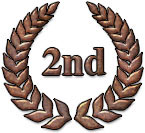
2nd Place: Cassandra Crossing
Chicagoland, Illinois
Congratulations, Cassandra!
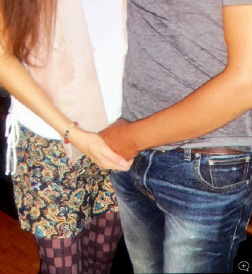
Cassandra’s Bio:
Cassandra Crossing immigrated from Hungary and now resides in the Chicagoland area. Poetry and writing have been her life-long dream, and in recent years she’s pursued it by learning everything she can about the craft and by writing every day. Her work includes short stories, creative nonfiction essays, memoir, flash fiction, plays, and poetry. She’s also working on a few novels and novellas. She writes from personal experience about love, despair, loss, and hope.
Her creative nonfiction essay “Why Are You Here?” won Runner Up in a contest by WOW! Women on Writing and has been published in October 2019. An interview was posted by WOW on The Muffin on January 5, 2020. Many of her other creative nonfiction essays like “Naked,” “Paying Attention,” “Empowered,” “A Future, Bright and Free,” and “Sorrow” as well as her flash fiction “Allure,” “The Cabin,” and “The Scent of White Chrysanthemums” were finalists in contests by WOW! Women on Writing.
Cassandra’s creative nonfiction essay “Things That Matter,” her short story “Parenting Advice,” and her plays “The Chair” and “Three Tickets For the Show” had been selected by Oakton Community College as finalists to represent them in the annual Skyway Competitions in recent years.
Her poem “Not Good Enough” has been published in 2019 and “Never to Try Again” in 2020 by the Illinois State Poetry Society (ISPS) on their website. A selection of five poems is forthcoming in the March 2020 issue of The Scarlet Leaf Review. “Perception: My Heart is Yours” has been published online in Unlimited Literature (UL-Mag) and also by Ariel Publishing on their website in 2020.
You can find some of Cassandra’s work on her website: ccrossing888.wixsite.com/Cassandra
Critique her unpublished work at: www.scribophile.com/authors/Cassandra-Crossing/
Join her private Facebook group: Writers Helping Writers
Connect with her on Discord: Cassandra#4061 Her server: Cassandra’s Creative Writing
And please support her on Patreon: www.patreon.com/CassandraCrossing.
Printable View
Naked
By Cassandra Crossing
They’ll find my bare body in the bathtub. I’m not prepared for anyone to rummage through my things. Not ready for them to look at journals of my deepest secrets. My half-written stories. Stories I’d only share under a pen name.
I’m not ready to be found dead, naked. I haven’t lost the weight I gained a year ago. Since I stopped vaping nicotine—only started because of sexual harassment by the contractor remodeling my bathroom, reminded me of the trauma I experienced as a young child and teenager. I open the shower curtain, shivering.
*
Over three years ago, someone hit my car. The ambulance took me to the hospital with a concussion. My memory isn’t as perfect as in the past since then.
Mayo Clinic says, “Alzheimer’s is a progressive disorder that causes brain cells to waste away (degenerate) and die.”
I never wanted to lose my mind. My body had seemed expendable, but not my logic, reasoning, ability to remember. “An early sign of the disease is usually difficulty recalling recent events or conversations.” I could never cut myself on purpose. The coppery stench and the sight of blood nauseate me. I’m allergic to copper.
*
Why are there no windows here? So I could see the morning sun’s light streaming in one last time? The last things I’ll see are these strawberry-pink walls, the porcelain toilet, floor-to-ceiling mirrored-cabinet by the door. No counter. No sink. More than three years, and I haven’t yet trusted men to come in to install them. The bathroom could use some cleaning, organizing. The whole apartment could.
Why am I concerned with what anyone will think, find? Are these the typical thoughts, regrets of the dying?
*
In my youth, I’d taken pills twice—attempting to kill myself. The second time, I left a note. I wanted them to know it wasn’t an accidental overdose. I made sure they were aware of my choice of ending it all. Now, I want to shout, “Stop bleeding! This shouldn’t be my end!” Do I value life more now that I have lived?
Still, why do I care what people think once I’m gone, and how they will discover me? It makes sense I wouldn’t want this burden on my son—he’d be devastated—but anyone else? Who cares?
This could be a puzzle. Unsolvable. “Why did she do it?” They’d ask. “Wasn’t she happy?” I love puzzles. They’re functional exercises for the brain. My father brought home a puzzle-filled magazine every week. I’ve been solving them since childhood. Later, I learned that blueberries and puzzles are the best ways to try to prevent Alzheimer’s.
*
The contractor asked me to hold the two-by-four in place. He grabbed me. I jumped away. He laughed. My memory was still perfect. As a child, I had been molested.
*
My older son—who often comes across as an all-knowing sage, although not always accurate—he’d probably squint at my teenage son and proclaim, “This was a long time coming. She had a terrible life. For so long. That kind of stuff messes with you, and one day, you can’t shut your eyes anymore. Plus, she never got over losing our sister.”
No, I’m not thinking of what my eldest would say, but maybe in my subconscious, those words are present, embedded. Sometimes, we’re not aware of these thoughts at the moment. Only that nagging feeling: This is wrong. They can’t find me like this!
*
“Risk factors: Genetics, head injuries, depression, hypertension.”
Throughout the years, Mom, my sister, and I had struggled with our fair share of depression. Not without cause. Anyone in our place probably would have. My sister and I grew up with an alcoholic father—physical abuse was one of his ways to keep us down.
When the kids were small, I worked as a caretaker, part-time. The lady had dementia. She needed help getting out of bed, walking to the bathroom, taking pills. I spoon-fed her like a baby. Answered her repeating questions—a recording on a loop—as if she’d just asked for the first time. “Alzheimer’s is the cause of 60-70% of cases of dementia,” according to Wikipedia. She wanted to go home every day, leaving her house, wandering the streets, thinking her daughter was her niece.
*
The blade’s sharp, brand-new, but in a hurry, without caution, I ran it up my left calf. Then the right. A small consolation to think that at least I’m not standing here half-shaven on one leg, pressing a wad of toilet paper on the wound. At least two inches long, running down in the back toward my heel, 3-5 millimeters wide.
My teenage son will find me upon awakening. A harrowing situation that will stamp him with a kind of sorrow he’ll never forget. Will he ever be okay? My sons will think I committed suicide! Everyone will believe I committed suicide! What a stupid mistake! They won’t know I only carved myself shaving.
Piercing pain. Crimson colors the bottom of the white tub, the side. Why won’t it stop? How much blood can one lose without fainting? Is this the end? Movies depict how some broken souls slice near their ankles, not the usual place, the wrists. At sixteen, I was raped. At nineteen, I was raped. I’ll bleed to death.
*
The contractor said, “Check, the toilet’s leaking.” He grabbed me again. I ran. He chased me.
*
“As the disease advances, symptoms can include problems with language, disorientation, mood swings, loss of motivation, not managing self-care, and behavioral issues.”
I’ve been watching for symptoms when I visit Mom; when calling her to talk—myself, too, since the accident. She’s over sixty-five, the usual time of onset. Even if I diagnose her and blame the moodiness and her harsh treatment on this neurological disease, what else could I do? How could I help her? She lives thousands of miles away, and here I stand in a pool of blood, naked.
***
What Cassandra Won:

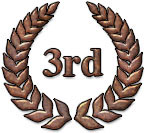
3rd Place: Maria C.
UK & Canada
Congratulations, Maria!
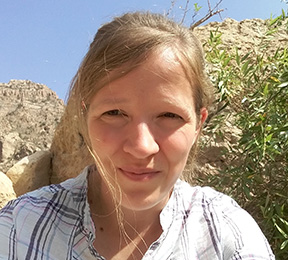
Maria’s Bio:
Maria began her writing career as a teenager in the UK, but took a sabbatical to pursue a decade-long stint in the military. Having left that behind and recently moved to Canada, where life seems so far to be a great deal colder, she has decided to take a tentative step back out into the creative writing world. At the very least, it’s a good excuse to postpone the moment when she will finally have to venture out into the snow.
Maria works as a translator specializing in Middle Eastern languages, and most days feels like she ended up in the job by accident. Last year she set off on a motorbike to ride to both Africa and the Arctic Circle, but ended up in Bosnia instead. She has grown to appreciate the unexpected and circuitous routes that life can sometimes take, and now realizes that, if nothing else, it can result in some darn good stories. She hopes one day to become adept enough to write them.
Printable View
A Guide to DIY Amputation
By Maria C.
I once had a skin-tag on my thigh. With the dimensions of a small lentil, it was hardly a life-changing deformity. It was the kind of thing I’d just rub occasionally, unconsciously. The kind of thing that made me feel self-conscious about wearing a bathing suit, my imagination making a mountain out of a molehill.
The day I first tied a piece of string around it was the day my friend died.
“Please tell me you’re joking,” my sister implored me when I told her. “Just get the doctor to do it. You can’t go around amputating parts of your body!”
I had received a phone call when I was halfway through getting dressed one morning. There had been an accident. There was nothing anyone could have done. They were so sorry.
I sat on my bed in my t-shirt, staring at the skin-tag on my leg. Nobody tells you how to react to news like that. There are no lessons about it in school. Should I be crying? Should I be raging? Whilst still trying to decide, I selected a piece of white cotton from my sewing kit, and slipped a loop of it over the skin-tag. It pinched painfully as it tightened, and I smiled.
The ache spread across my leg as I put my trousers on and went to work. The scene of the accident was undisturbed, shards of glass and twisted metal still lying where the aircraft and its pilot had hit the ground. Nobody tells you how to look at things like that. Or explains how numbness and pain can be the same thing. When I got home I re-tightened the cotton and watched as the blood supply cut off.
I phoned my sister again.
“It’s going well, actually. It’s shrunk quite a bit, but doesn’t seem to be getting infected.”
“You need help.”
Management called our engineering team together a few days later, to discuss what had happened. It had probably been a horrific twist of fate, but it was one that would be investigated fully. We would all be expected to take part in interviews, and submit our maintenance records and paperwork for examination. If one of us had screwed up, then they would find out. But we had their sympathies, apparently.
I stood side by side with my colleagues, feeling the words pelt me like little darts as I reached through the torn pocket of my overalls and tugged gently on the ends of the piece of thread. The skin-tag had shriveled up completely now, and re-tightening the cotton had become a trickier task than I had anticipated.
“If it’s infected, you should really go and see the doctor.”
I was starting to wish I hadn't told my sister about my do-it-yourself amputation project. She seemed to be far more emotionally invested in it than I was. While she expressed growing concern, I just regarded it with indifference; an increasingly painful inconvenience that proved I could still feel. Something that marked the passage of time in a world that had, in many other ways, stopped.
On the day of the funeral I couldn't bring myself to renew the cotton. It was clamped so tightly around the bottom of the tag that I couldn’t actually get it undone. I shrugged, and eased my trousers up to hide it.
I met the rest of my colleagues afterwards at the wake, barely recognising some of my fellow mechanics in their dark suits and ties. I felt a familiar bite of pain as I sat, and I wondered what the rest of them were concealing underneath their starched shirts and lint-free jackets. Were they cutting away parts of themselves, too?
We drank a lot. Too much. As if trying to prove that it’s actually possible to drown your sorrows. The weight that had been building in my chest became unbearable by midnight, and I headed for the hotel’s washroom with mumbled excuses before a scream broke free. I could see little to be gained by breaking down in front of a roomful of people who were all, on the surface at least, whole.
I slammed into the cubicle door, weaved my way around it, and managed to lock it behind me. Without thinking, I unbuttoned my trousers and wrenched them down as I sat, with none of the care I had taken for the past two weeks.
The long ends of the cotton caught in the zip.
There was a sharp, shooting pain as the skin-tag tore off completely.
I swore loudly in shock. The wound was small, fairly clean, and surprisingly neat. A strange sense of satisfaction settled over me, tinged with an odd feeling of loss.
I detached the string still hanging from my zip, and held it up to the light to see what was left of my skin-tag. The urge to giggle was strong, and seemed deeply inappropriate. Tears came to my eyes as I fought to conceal my laughter from the neighbouring cubicles. They would never understand how I came to be sitting here, alone, on a toilet, with feet rubbed raw by ill-fitting heels, a headache from too much wine, a drop of blood hovering on my thigh, and a piece of cotton held high with a dead piece of myself still caught in it. The tears spilled over.
Surely this must be my lowest point.
I bowed my head to watch as tears landed on my thighs with a silent splash, and used my thumb to push one of them across the bloody gap where my skin-tag had been. My leg was fine, but my heart hurt in indescribable ways. A savage feeling of emptiness. Grief for a friend torn away, and a wound that would never fully heal.
And now, occasionally, I catch a glimpse of the small, white scar on my leg—all that remains of my DIY amputation project. And I remember the day my friend died.
***
What Maria Won:
 THANK YOU TO OUR CONTEST SPONSOR:
It is the sincere desire of our sponsor that each writer will keep her focus and never give up. Mari L. McCarthy has kindly donated a prize to each winning contestant. All of the items in her shop are phenomenal and can help you reach your writing goals. Write on!
Journaling Power Heals The Issues In Your Tissues
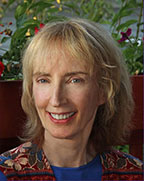
As writers, we know the importance of keeping a journal and committing to Morning Pages. Mari L. McCarthy, The Journaling Guru and founder of CreateWriteNow, also knows this firsthand. Over twenty years ago, she was diagnosed with Multiple Sclerosis (MS) and lost the feeling and function of the right side of her body. The doctors weren’t helping and neither were the prescription drugs, so she turned to journaling as a way to heal and recapture her quality of life. Her transformation was nothing short of radical. Over the years, she’s helped thousands of people put pen to paper and transform their lives, too. Her self-paced journaling courses are incredible and will inspire your best writing and best self. Journal every day and the possibilities are limitless.
Visit CreateWriteNow and find out more: www.createwritenow.com.
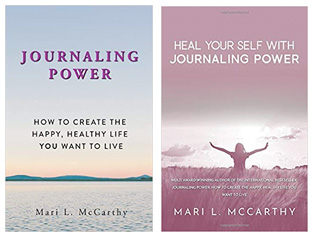 Check out Mari’s award-winning books, Journaling Power: How to Create the Happy, Healthy Life You Want to Live! and Heal Yourself with Journaling Power “If you’ve ever doubted the therapeutic and transformative benefits of journaling, you need to read Mari L. McCarthy’s Journaling Power. A powerful tool for positive change, this book also contains the inspirational journaling exercises and encouragement that Mari is famous for, so you can embark on your own journey of transformation.” ~ Angela Mackintosh, Publisher, WOW! Women On Writing
“Heal Yourself with Journaling Power is a breath of fresh air in today’s stressful world. The idea that all you need is a pen and paper to change your outlook, create a new life story, or even enhance your health and wellbeing is revolutionary. Author Mari L. McCarthy takes readers on a guided journey to a more fulfilled life through motivational wisdom and journaling exercises. What I appreciate most about this book, as with all of Mari's journaling workbooks, is the individual nature and deep soul connection with the journaling work. Everyone will find their own aha moment as they work their way through the journaling exercises, making this book a deeply personal experience for each reader.” ~ Angela Mackintosh, Publisher, WOW! Women On Writing
Thank you, Mari! You continue to inspire.
 RUNNERS UP:
Congratulations to the runners-up! It was very close, and these essays are excellent in every way.
Click on the titles to read:
Damages by Sara Wright Covington, Huntsville, Alabama
Talk About the Curse by Caroline Tanner, Washington DC
Where? by Allison Hong Merrill, Utah
Why I Hate Yellow Peas by E. Izabelle Cassandra Alexander, Des Plaines, Illinois
Law & Yoga by Jennifer Lauren, Seattle, Washington
Good Morning, Class by Miranda Keller, Puget Sound, Washington Oxfords and Heels—Walking Through Life by Charlotte B. Roth, Louisville, Kentucky
HONORABLE MENTIONS:
Congratulations to our Essay Contest Honorable Mentions! Your essays stood out and are excellent in every way.
Happily Even After by Kathy Kovacs, Edmonton, Alberta, CANADA
For “Carer,” Read “Wife” by Alexandra Bayliss, Hampshire, ENGLAND
The Blue Room by Cate Touryan, San Luis Obispo, California
Pardon Me—Is that a Rodent in Your Head? by Ilene Haddad, Austin, Texas
A Darker Shade of Vermillion by Seetha Nambiar Dodd, Sydney, Australia
Truck vs. Pedestrian by Diana Vandeveer, Louisville, Kentucky
Every Pot Has a Lid by Mary E. Robertson, Huntington Woods, Michigan
The Long Run Back by Michelle Terhune, Kirksville, Missouri
Reeling by Rebecca Baird, Dundee, Scotland
The Glamour of Travel by Barbara Katz, St. Petersburg, Florida
What the Honorable Mentions Won:

IN CLOSING:
This brings the Q2 2020 essay contest officially to a close! Although we’re not able to send a special prize to every contestant, we will always give our heartfelt thanks for your participation and contribution, and for your part in making WOW! all that it can be. Each one of you has found the courage to enter, and that is a remarkable accomplishment in itself. We’re looking forward to receiving your entries for our next contest. Best of luck, and write on!
Check out the latest Contests:
https://www.wow-womenonwriting.com/contest.php
|
|
|
|
|